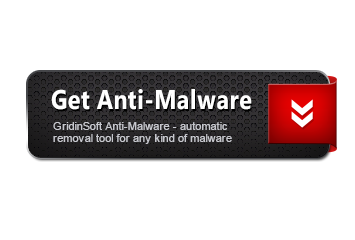The Trojan.Win32.Qshell.ogu is considered dangerous by lots of security experts. When this infection is active, you may notice unwanted processes in Task Manager list. In this case, it is adviced to scan your computer with GridinSoft Anti-Malware.

Gridinsoft Anti-Malware
Removing PC viruses manually may take hours and may damage your PC in the process. We recommend using GridinSoft Anti-Malware for virus removal. Allows to complete scan and cure your PC during the trial period.
What Trojan.Win32.Qshell.ogu virus can do?
- Behavioural detection: Executable code extraction – unpacking
- SetUnhandledExceptionFilter detected (possible anti-debug)
- At least one process apparently crashed during execution
- Yara rule detections observed from a process memory dump/dropped files/CAPE
- Creates RWX memory
- Possible date expiration check, exits too soon after checking local time
- Guard pages use detected – possible anti-debugging.
- Dynamic (imported) function loading detected
- Performs HTTP requests potentially not found in PCAP.
- Reads data out of its own binary image
- A process created a hidden window
- CAPE extracted potentially suspicious content
- Drops a binary and executes it
- The binary contains an unknown PE section name indicative of packing
- Authenticode signature is invalid
- A scripting utility was executed
- Uses Windows utilities for basic functionality
- Uses Windows utilities for basic functionality
- Detects Sandboxie through the presence of a library
- Detects Avast Antivirus through the presence of a library
- Behavioural detection: Injection (Process Hollowing)
- Executed a process and injected code into it, probably while unpacking
- Behavioural detection: Injection (inter-process)
- Checks for the presence of known windows from debuggers and forensic tools
- Created a process from a suspicious location
- Collects and encrypts information about the computer likely to send to C2 server
- Checks the presence of disk drives in the registry, possibly for anti-virtualization
- Attempts to modify Windows Defender using PowerShell
- Attempts to execute suspicious powershell command arguments
How to determine Trojan.Win32.Qshell.ogu?
File Info:
name: C91DBA123CC183B7642D.mlwpath: /opt/CAPEv2/storage/binaries/0b97fd21ab1de51304066540181b0733fff5531a542f566f4671d18b26e90e97crc32: 5D8F97DAmd5: c91dba123cc183b7642ddb9ed016cf84sha1: 4b977d75e6584b6a8a90fba3c438c5758bafb1f9sha256: 0b97fd21ab1de51304066540181b0733fff5531a542f566f4671d18b26e90e97sha512: 1f98a549b770ba0838d42143293f77e13ac66f5cac625c94f13b0c1d89f7844dd2d1da469f54d4e595551f7da9622370e114fd3469e2c033404e8f30c1543643ssdeep: 196608:xwdVEePFtiRdv9+oUBYZpnwYRNX0C97a4jljg/Y8Up+kNX/:xwHPFtijVXp9wuNEC9e0jgLKnX/type: PE32 executable (GUI) Intel 80386, for MS Windowstlsh: T187963351E5ADC4F6DA7124345EF84F73B1BBC36506364AB39B0423372772092358BAE6sha3_384: c64ad73e4403c45cb972ed209472be6cd21e323f6b924b16b4b6fefc288b19a4d24f81f54242271e2cce1faa107814d7ep_bytes: 558bec6aff6898c24100680691410064timestamp: 2019-02-21 16:00:00Version Info:
CompanyName: Igor PavlovFileDescription: 7z Setup SFXFileVersion: 19.00InternalName: 7zS.sfxLegalCopyright: Copyright (c) 1999-2018 Igor PavlovOriginalFilename: 7zS.sfx.exeProductName: 7-ZipProductVersion: 19.00Translation: 0x0409 0x04b0
Trojan.Win32.Qshell.ogu also known as:
| Bkav | W32.AIDetect.malware2 |
| MicroWorld-eScan | Dropped:Trojan.GenericKD.39761499 |
| FireEye | Dropped:Trojan.GenericKD.39761499 |
| CAT-QuickHeal | Trojan.IGENERIC |
| Cylance | Unsafe |
| K7AntiVirus | Trojan-Downloader ( 005901c21 ) |
| BitDefender | Dropped:Trojan.GenericKD.39761499 |
| K7GW | Trojan-Downloader ( 005901c21 ) |
| Cybereason | malicious.23cc18 |
| Cyren | W32/MSIL_Troj.BRW.gen!Eldorado |
| Elastic | malicious (high confidence) |
| ESET-NOD32 | multiple detections |
| ClamAV | Win.Dropper.Pswtool-9857487-0 |
| Kaspersky | Trojan.Win32.Qshell.ogu |
| NANO-Antivirus | Trojan.Win32.Stealer.jpfclk |
| Rising | Trojan.Starter!1.DDB6 (CLASSIC:bWQ1Op92/PBWuRq4) |
| Ad-Aware | Dropped:Trojan.GenericKD.39761499 |
| Sophos | Mal/Generic-S |
| DrWeb | Trojan.Siggen18.4227 |
| TrendMicro | TROJ_GEN.R002C0PF822 |
| McAfee-GW-Edition | GenericRXSS-KU!05C6B8FDA569 |
| Emsisoft | Dropped:Trojan.GenericKD.39761499 (B) |
| Jiangmin | Trojan.Generic.hhjod |
| Avira | TR/Dldr.Agent.hfnox |
| Kingsoft | Win32.Troj.Agentb.kr.(kcloud) |
| Microsoft | Trojan:Win32/Wacatac.B!ml |
| GData | Dropped:Trojan.GenericKD.39761499 |
| Acronis | suspicious |
| BitDefenderTheta | Gen:NN.ZemsilF.34712.du0@aOp73ld |
| ALYac | Dropped:Trojan.GenericKD.39761499 |
| MAX | malware (ai score=80) |
| VBA32 | CIL.StupidPInvoker-1.Heur |
| Malwarebytes | Malware.AI.4009043829 |
| Panda | Trj/CI.A |
| TrendMicro-HouseCall | TROJ_GEN.R002C0PF822 |
| Ikarus | Trojan-Downloader.MSIL.Agent |
| Fortinet | MSIL/AGen.DL!tr.dldr |
| AVG | Win32:DropperX-gen [Drp] |
| Avast | Win32:DropperX-gen [Drp] |
| CrowdStrike | win/malicious_confidence_90% (W) |
How to remove Trojan.Win32.Qshell.ogu?
- Download and install GridinSoft Anti-Malware.
- Open GridinSoft Anti-Malware and perform a “Standard scan“.
- “Move to quarantine” all items.
- Open “Tools” tab – Press “Reset Browser Settings“.
- Select proper browser and options – Click “Reset”.
- Restart your computer.



Leave a Comment